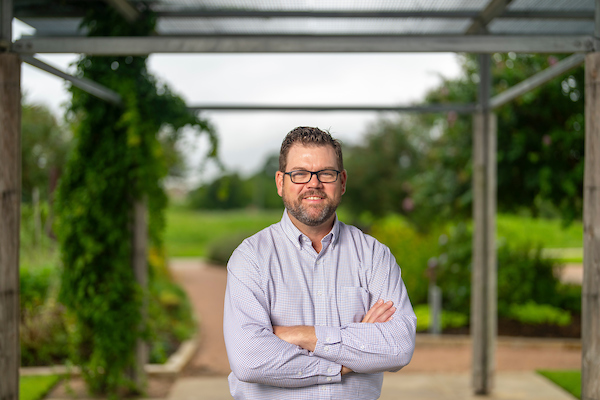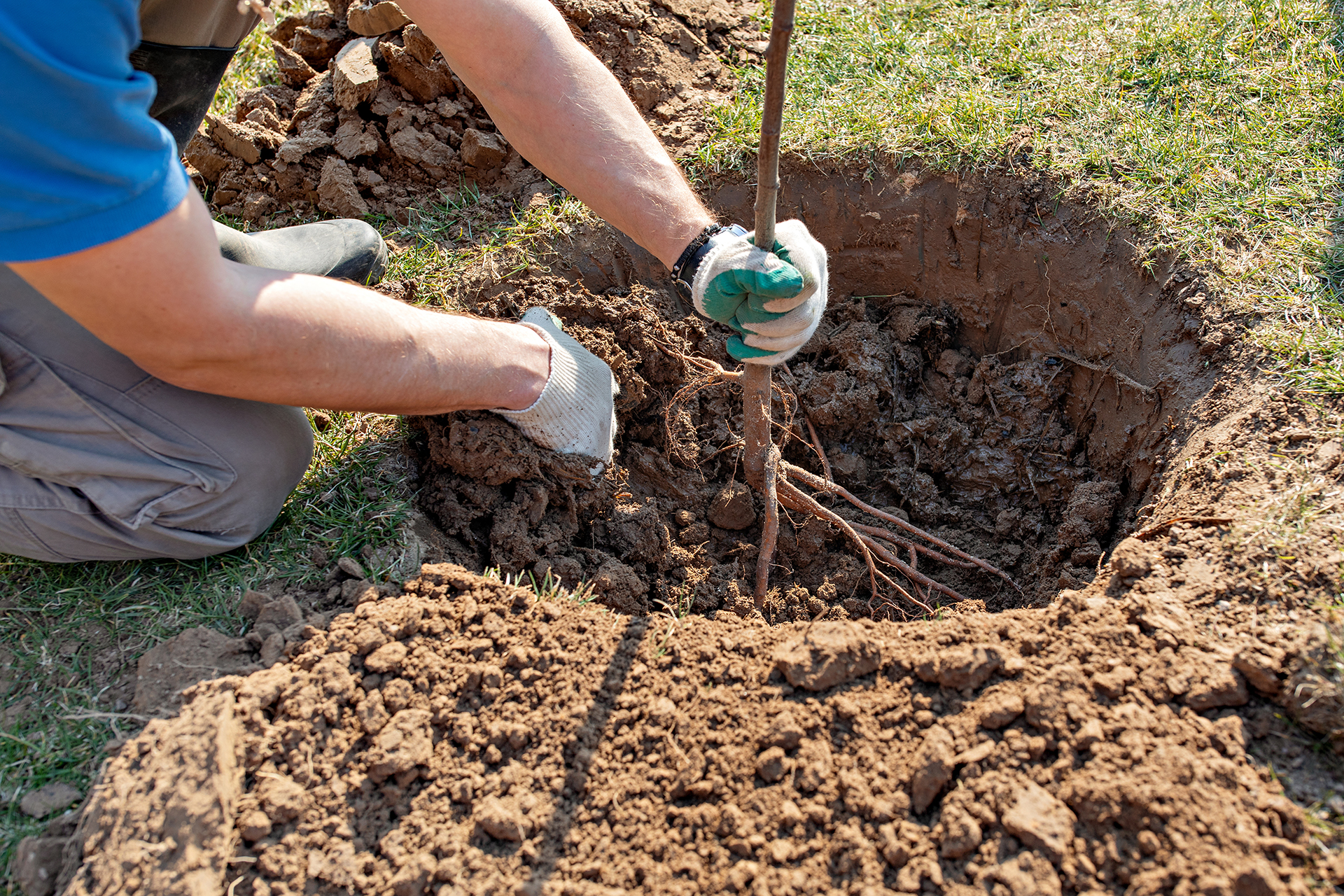Texas A&M AgriLife Research adds ornamental specialist
King plans innovative greenhouse, nursery plant research program at Overton Center
Andrew King, Ph.D., has been hired as the new Texas A&M AgriLife Research ornamental specialist and assistant professor in the Texas A&M Department of Horticultural Sciences to support Texas’ greenhouse and nursery industries.

His position will be dedicated to 75% research and 25% extension outreach. He will be stationed at the Texas A&M AgriLife Research and Extension Center at Overton.
King has nearly 30 years of experience in the nursery industry but has been around horticulture all his life. He is a fourth-generation horticulturist who continues to be involved in the nursery operation that has been in his family for almost 110 years.
“I really can’t remember a time when I wasn’t around a nursery,” he said. “I never thought about doing anything else, and I really appreciate the fact that the people in the industry are so passionate about what we do for homeowners and landscape and gardening enthusiasts.”
Research focused on plant performance
King plans to implement a research program that addresses a broad range of industry needs, including labor, plant trials and cultivar creation.
He is preparing to reestablish and expand the ornamental plant trial program at Overton run by his predecessor, Brent Pemberton, Ph.D., professor emeritus. The plant trials included more than 500 ornamental cultivars that were being tested alongside well-established industry-standard plants to assess their performance in East Texas. There are also plans to open the trials to the public as an annual field day.
King plans to expand field trials to nursery material, including shrubs and trees, to test new cultivars under Texas conditions. He also expects to implement a breeding program he hopes will improve new and popular plants, shrubs and trees being introduced in other parts of the U.S.
“Homeowners want to put out plants and trees they see on social media, but those varieties are not always suited for Texas, and that leads to a disappointed consumer,” he said. “I’m most excited about breeding popular cultivars and finding ways to improve their tolerance to heat, alkalinity and other Texas conditions. We have a lot of space here, and the engagement with plant and seed companies has been very positive.”
Innovative research for greenhouse, nursery operations
King’s plant breeding and trial programs will help expand options for growers and consumers, but he also hopes to address challenges for greenhouse and nursery production.
Investigating and improving precision horticulture methods for greenhouses and nurseries, including the use of mechanization, automation and UAVs, or drones, to manage ornamental and landscape plants will be a priority, King said.
Identifying more efficient ways to grow and manage nursery and greenhouse plants will address labor shortages, but also optimize inputs like fertilizer and water and minimize the need for pest and disease control applications. Innovations will be key to the industry’s resilience and sustainability.
“The industry has been understaffed for more than two decades,” he said. “We hope to provide innovative solutions to that problem. And there is incredible opportunity to expand our knowledge about how technology can help operations manage plants more effectively and efficiently.”
More about King
King said his program will explore collaborative opportunities across industry, academia and other institutions, including the Texas Nursery and Landscape Association and the Dallas Arboretum and Botanical Garden.
King received his bachelor’s degree in agriculture at Stephen F. Austin University and master’s and doctoral degrees from Texas A&M University. He was a lecturer in the Department of Horticultural Sciences from 2016-2020 and an adjunct professor of nursery production and management and arboriculture in 2022 and 2023, respectively. King was also assistant director of the SFA Gardens at Stephen F. Austin University in 2023.
“I hope to do a little bit of everything,” he said. “I am looking forward to working with the people involved in the industry. They’re excited about their focus, and that creates potential for collaboration and momentum to positively impact the industry, individual growers and ultimately consumers who utilize these plants.”





